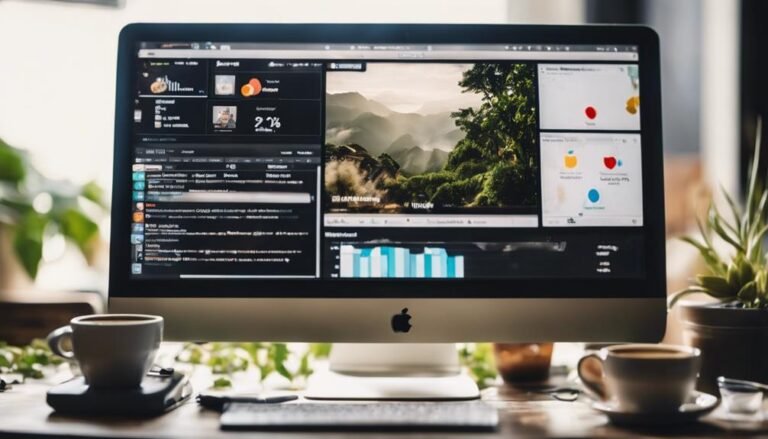Privacy on Social Media: Potential Threats and Preventative Measures
Have you ever stopped to think about who’s peeking into your digital life as you scroll through TikTok, Instagram, or Snapchat? In truth, the online world isn’t as private as you may imagine it to be. Let’s dive into the potential threats hiding in the corners of the internet and, more importantly, how you can safeguard your privacy like a pro.
The Dark Side of Social Media
Social media is an amazing tool to connect with friends, share memories, and even discover new interests. But with great power comes great responsibility – or, in this case, potential privacy traps. Here are some of the biggest threats you may encounter:
1. Data Harvesting
Every like, share, and comment you make can be (and probably is) tracked. Companies collect this data to create detailed profiles about you, which they then sell to advertisers. This can feel invasive and creepy, especially when you start seeing ads that seem to read your mind.
2. Cyberbullying and Harassment
Unfortunately, the anonymity of social media can bring out the worst in some people. Cyberbullying is a serious issue that affects our collective mental health and well-being. It’s crucial to recognize and report any abusive behavior to keep yourself and others safe.
3. Phishing Scams
Have you ever received a sketchy DM promising you a free iPhone? Or a message from a Nigerian prince who wants to make you his wife? That’s likely a phishing scam designed to steal your personal information. Falling for these messages can lead to identity theft, financial loss, and a whole lot of unnecessary stress.
4. Location Tracking
Many social media apps track your real-time location, sometimes even when you’re not using them actively. This can lead to real-world dangers like stalking or unwanted encounters. Always be cautious about sharing your location publicly.
Locking Down Your Digital Life
Now that we know the risks let’s talk about how to keep your social media experience safe and sound. Here are some pro tips to shield your online privacy:
1. Tighten Up Your Privacy Settings
First things first, make sure your social media accounts are set to private mode. This way, only people you approve of can see your posts. Go through your settings and adjust them to limit who can find you, see your content, and contact you.
2. Be Selective About What You Share
Think long and hard before posting personal details like your home address, phone number, or daily routines. The less information you put out there, the harder it is for someone to abuse it.
3. Use Strong, Unique Passwords
Never ever use “password123” or your pet’s name as your password. Use a mix of letters (uppercase and lowercase), numbers, and symbols, and make sure each account has a different, unique password. You should also consider using a password manager tool to keep track of them all.
4. Enable Two-Factor Authentication (2FA)
2FA adds an extra layer of security by requiring a second form of verification, like a text message code, to log in. This makes it much harder for hackers to access your accounts.
5. Watch Out for Phishing Attempts
Be cautious of messages from unknown sources, and avoid clicking on suspicious links. If something seems too good to be true, it probably is. Always verify the sender’s identity before providing any personal information.

Proxies: Your Secret Weapon
Now, let’s talk about a less-known but super-effective tool for protecting your privacy: proxies.
What Are Proxies?
In simple terms, a proxy acts as a middleman between your device and the internet. When you use a proxy server, your internet requests go through this server before reaching the website or app you’re accessing. This masks your IP address, making it harder for trackers and hackers to pinpoint your exact location or identity.
How Proxies Can Help You
- Anonymity: Proxies hide your real IP address, making your online actions more anonymous. This is especially useful if you want to browse social media without leaving a digital trail.
- Bypass Geo-Restrictions: Ever noticed some content isn’t available in your country? Proxies can help you access content that’s restricted based on your location by making it look like you’re browsing from a different place.
- Enhanced Security: Some proxies offer additional security features, such as encryption, which can protect your data from being intercepted by malicious actors.
- Avoid Targeted Ads: Tired of those eerily accurate ads? Using a proxy can disrupt the tracking algorithms that target you based on your browsing habits.
Choosing the Right Proxy
Not all proxies are created equal. Here’s what to look for when choosing a proxy service:
- Reliability: Choose a service known for its uptime and speed. You don’t want your browsing to be interrupted by a slow or unreliable proxy.
- Security Features: Look for proxies that offer strong encryption and other security measures to protect your data.
- Reputation: Check reviews and ratings to ensure you’re using a trustworthy service.
To protect yourself and your sensitive information, it may be a good idea to now purchase a rotating proxy service – let yourself sleep peacefully at night, knowing you’re safe and protected online.
Conclusion
Staying safe on social media doesn’t mean you have to disconnect from the digital world. By being aware of the risks and taking proactive steps, you can enjoy all the perks of social media while keeping your privacy intact. Tighten up those privacy settings, be mindful of what you share, and consider using tools like proxies to add an extra layer of protection.
Remember, the key to a safer online experience is staying informed and vigilant. So, go forth and share those epic moments – but do it smartly and securely. Happy scrolling!





